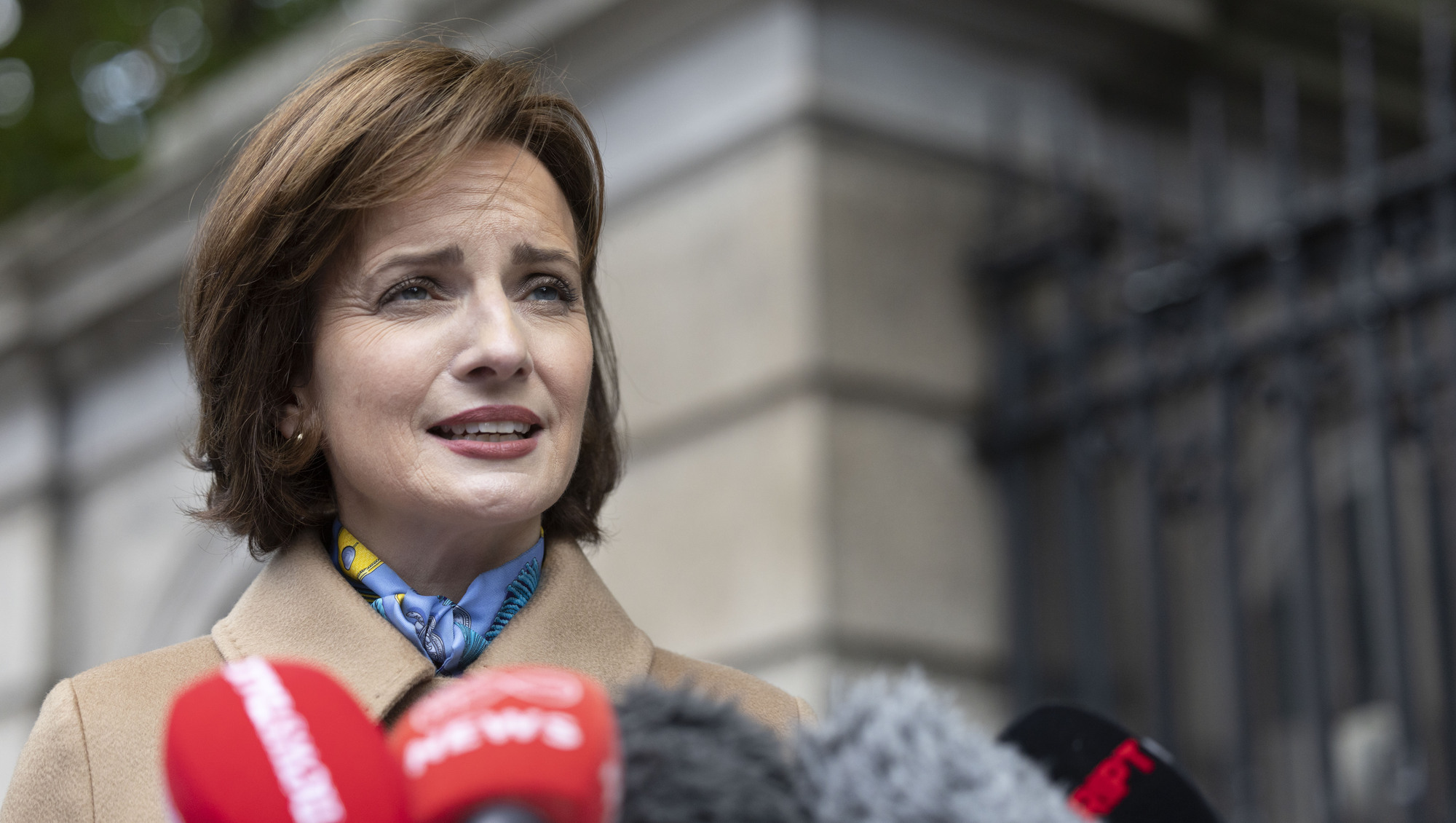Politics
Presidential Aspirants Face Intense Scrutiny in Ireland’s Race

The Irish presidential campaign has taken a tumultuous turn, highlighted by the recent withdrawal of Fianna Fáil candidate Jim Gavin following intense scrutiny of his past. Gavin’s abrupt exit has raised questions about the integrity of the nomination process and the psychological toll of campaigning for the nation’s highest office.
This week, Maria Steen, who sought a nomination but was unsuccessful, suggested that the election should be cancelled and rerun, ostensibly to give herself another opportunity. Such comments may reflect a lack of awareness regarding the emotional strain candidates endure. The fallout from Gavin’s candidacy has left Fianna Fáil and its leader, Micheál Martin, grappling with substantial reputational damage, as the party was portrayed as inept in its candidate selection.
Gavin’s downfall highlights the pressures candidates face during their campaigns. Having previously enjoyed considerable success in both sports and public service, his experience underscores the emotional toll of presidential aspirations. Observers note that the intensity of the campaign is capable of leaving candidates feeling “bereft and emotionally sunk,” as they navigate the challenges of public scrutiny.
Reflecting on the toll of the campaign, James O’Connor, a Fianna Fáil TD, remarked that “six weeks ago, Jim Gavin was a private citizen and an Irish sporting hero.” The implications of this statement are profound, suggesting that the pressures of running for president can transform even the most respected figures into shadows of their former selves.
Former senator Joan Freeman, who ran as an Independent candidate in the 2018 election, has firsthand experience of these challenges. In an article for The Irish Times, she described fear as the dominant emotion of her campaign, rather than ambition or hope. The fear stemmed from the constant concern over how the media would portray her, a sentiment echoed by many candidates who have endured exhaustive examinations of their pasts.
The media’s role in this political landscape cannot be overstated. Candidates’ histories are often dredged up, regardless of how long ago events occurred. The case of Gavin Duffy, who ran in 2018, illustrates this phenomenon. Despite being a media-savvy individual, Duffy faced backlash when a past car accident from his teenage years resurfaced, impacting his confidence and public perception during the campaign.
Media strategist Richard Moore, who advised Duffy, noted the unexpected nature of the revelations regarding Gavin’s past. He pointed out that the focus on personal histories can overshadow substantive political discussions, creating an environment where even minor infractions are scrutinized heavily.
The intensity of media coverage can lead to what Moore describes as “presidential inflation,” where any uncovered issue is exaggerated due to the lack of policy discussions. This dynamic particularly affects Independent candidates, who may not be as accustomed to such scrutiny.
For instance, in the current campaign, Catherine Connolly faced criticism over a controversial trip to Syria. However, her calm demeanor in addressing these issues reflects how experience may mitigate the effects of media scrutiny, unlike newer candidates who might struggle under similar circumstances.
The media’s focus has historically delved deep into candidates’ backgrounds, sometimes revealing personal tragedies. In the 1997 election, Adi Roche experienced what she termed a “shockingly dirty campaign,” wherein her family’s past was unfairly scrutinized. Such instances highlight the potential for candidates’ pasts to be weaponized against them, regardless of the context.
The psychological ramifications of this relentless scrutiny can be severe. Many candidates, despite their public service records and community commitments, find themselves facing unjust character attacks. The emotional toll of a presidential campaign is significant, often leading to a decline in candidates’ mental well-being.
Running for president in Ireland presents an admirable yet challenging pursuit. As the campaign season progresses, it remains to be seen how candidates will navigate the complex interplay of public perception, media scrutiny, and their pasts. The stakes are high, and the personal costs can be profound, prompting a reconsideration of the true nature of political ambition in the contemporary landscape.
-

 Top Stories3 months ago
Top Stories3 months agoTributes Surge for 9-Year-Old Leon Briody After Cancer Battle
-

 Entertainment4 months ago
Entertainment4 months agoAimee Osbourne Joins Family for Emotional Tribute to Ozzy
-

 Politics4 months ago
Politics4 months agoDanny Healy-Rae Considers Complaint After Altercation with Garda
-

 Top Stories4 months ago
Top Stories4 months agoIreland Enjoys Summer Heat as Hurricane Erin Approaches Atlantic
-

 World5 months ago
World5 months agoHawaii Commemorates 80 Years Since Hiroshima Bombing with Ceremony
-

 Top Stories3 months ago
Top Stories3 months agoNewcastle West Woman Patricia Foley Found Safe After Urgent Search
-

 Top Stories5 months ago
Top Stories5 months agoFianna Fáil TDs Urgently Consider Maire Geoghegan-Quinn for Presidency
-

 World5 months ago
World5 months agoCouple Convicted of Murdering Two-Year-Old Grandson in Wales
-

 World5 months ago
World5 months agoGaza Aid Distribution Tragedy: 20 Killed Amid Ongoing Violence
-

 World5 months ago
World5 months agoAristocrat Constance Marten and Partner Convicted of Infant Murder
-

 Top Stories4 months ago
Top Stories4 months agoClimbing Errigal: A Must-Do Summer Adventure in Donegal
-

 Top Stories4 months ago
Top Stories4 months agoHike Donegal’s Errigal Mountain NOW for Unforgettable Summer Views









